 By Cindy Cheatham
By Cindy Cheatham
Senior Consultant, TLG
Turknett Leadership Group is uniquely founded by Lyn & Bob Turknett whose Leadership Character Model™ (LCM) is founded on the principles of positive leadership before the field of Positive Psychology was established.
Many attributes of the LCM and the 360 assessment that TLG uses have aspects of important leadership attributes that could be also considered key fundamentals of positive psychology. These include emotional mastery and resilience and how these leadership attributes affect positive relationships, influence, first impressions, and more.
Sonja Lyubomirsky, Ph.D. and Distinguished Professor of Psychology at the University of California, Riverside has conducted a lot of research on happiness. Positive psychology has been more grounded in evidence-based practice in the past few decades and has been increasingly incorporated into corporate wellness, leadership development, and coaching. For example, there is evidence that happiness, according to Lyubomirsky’s research, is affected 50% by genetics and 10% by circumstances, but 40% can be positively affected by intentionally focusing on strategies to foster optimism and resilience.
As humans, we are naturally wired with a fight-or-flight or fear instinct when a variety of danger lurks our way, including when we meet people who are unfamiliar to us in background, race/ethnicity, or experience. I learned through the IDEA Certification Program which TLG administered through master coach and instructor, Dr. Cherry Collier that fight-or-flight is something we need to intentionally acknowledge. We can foster strategies to break down barriers and develop a greater sense of belonging and connection to improve outcomes with diversity, equity, inclusion, and belonging in the workplace.
Positive Leadership
Positive leadership helps to prepare the way for handling adverse scenarios and trying times. Organizations and leaders are constantly faced with uncertainty and good and bad news in their workplace and individuals and leaders face these at home as well. They cannot let circumstances of the day, week, or year overtake the positive opportunities presented – they must rather lead their teams and organizations to a better future.
The positive leadership style encourages building the strengths of employees and team members, being resilient and optimistic in difficult times, and recognizing each person’s contributions.
In my coaching, I particularly see those who are self-aware of personal and emotional challenges that they may bring to their work and who are intentional in managing to have great success in improving their positive leadership.
Our genetics and home life experience can shape some of us to have a less optimistic view or to bring a fragile self-confidence to our workplace. A healthy strengths-based optimistic orientation and strong self-confidence affect leaders’ ability to take on challenges without fear and to pursue innovation and risk-taking. This self-confidence helps a leader to exude a strong executive presence that helps them to win influence and respect. And our positive leaders can influence others to be more optimistic and enthusiastic about the workplace and hopeful for the future.
Coaching and Positive Psychology
Positive psychology focuses not so much on fixing our deficits as acknowledging some of our natural tendencies toward fear, doubt, and negativity, and gives us tools to move to more optimism and greater resilience. As coaches, we are trained to not try to “change our clients” but instead help them to gain awareness, motivation, energy, and a sense of self-efficacy to be their best selves at home and in the workplace.
The behaviors learned through good wholistic coaching and leadership development that acknowledges the human being and not just the human-doers all are very helpful to coaching toward higher performing and more effective leaders. As a coach, I pursue a wholistic approach to my coaching and to further my skills, certification, and to enhance my approach to helping leaders be grounded in their purpose, strengths, and to have the motivation to work on skills, behaviors, and approaches to leadership that will help them to “Flourish.”
And who does not want to have a happier, more joy-filled life and workplace? We have not even talked about employee engagement, which of course will be positively affected by strong, positive leadership. Good leadership involves strategy, business and organizational behavior skills and knowledge, and technical competencies, and it also involves a solid understanding of human psychology and positive psychology.
Looking forward to more happiness together in 2024!

